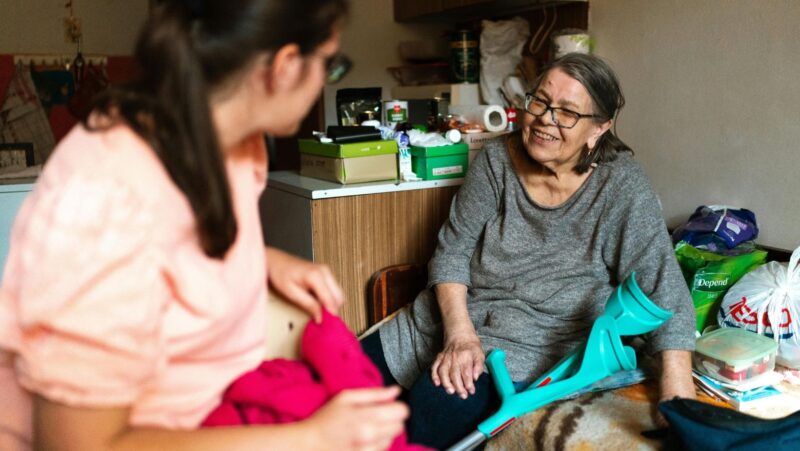
Working with patients who struggle with substance dependency will test your patience, your empathy, and your training. Not because they’re difficult, but because many of them come in carrying years of mistrust, and for good reason. Doctors have judged some. The system has failed others. Almost all have learned that opening up comes with risk. So when they sit across from you, they’re not wondering how much you know… they’re wondering if you’re safe. You can have the best treatment plan in the world, but it won’t land if they’ve already decided they can’t let their guard down. So, what does it take to build trust when someone’s been through enough to question it? That’s what we’re getting into here: real, practical ways to build trust with patients struggling with dependency.
How to Build Trust with Patients Struggling with Dependency
Start by Understanding the Trauma Beneath the Surface
Most patients don’t start using drugs because they’re reckless. They use to cope.
Let me clarify.
Substance dependency is often a response to unresolved trauma. That trauma might come from:
- Childhood neglect
- Family dysfunction
- Systemic abuse
- Untreated mental illness
And addiction? It becomes the way patients manage what feels unmanageable.
If you miss that – if you come in focused only on the behavior – you’ll miss the patient entirely.
Now, the thing about trust is it doesn’t grow in environments where people feel pathologized. Rather, it’s built when patients sense that you know exactly where they’re coming from, even if they’re not ready to say it all out loud. And frankly, when patients recognize that you are coming from a place of curiosity, not judgment, they tend to start letting their guard down.
That said, it’s best to approach patients with the assumption that there’s something underneath the addiction. Something that deeply hurt them. Only then can you start building trust with them.
Learn to Read the Signs
You can’t meet someone where they are if you don’t know what you’re seeing.
A lot of the behaviors that come with substance dependency get misunderstood – missed appointments, sudden mood swings, defensiveness, and shutting down. If you’re not paying attention, you might chalk it up to “non-compliance” or “difficult personality.” But in reality, you might be watching addiction unfold in real time.
When providers misread the signs, patients feel it, though. To you, it might seem as if you’re being neutral…but to someone who’s spent years feeling judged, misunderstood, or punished for the way they cope? Your silence or assumptions say plenty. For that reason, you need to learn how to spot the signs of addiction early and keep checking in with what might be going on underneath the behavior. These signs can be behavioral (like withdrawal from loved ones or ignoring responsibilities), physical (such as weight changes, fatigue, or poor hygiene), and emotional (including mood swings, anxiety, or depression), with denial often making recognition harder. Because if a patient feels like you don’t get it – or worse, that you’ve already made up your mind – trust is broken before the proper groundwork for it has even been laid.
Don’t Fix – Listen
Here’s the thing about people in recovery: they’ve often heard it all before.
They’ve been lectured, diagnosed, shamed, and given pamphlets they never read. What they haven’t had – more often than not – is someone who actually sits with them in the mess without trying to clean it up right away.
This is where active listening becomes your superpower. And no, it’s not just nodding and repeating what they say. It’s resisting the urge to interrupt. It’s validating without enabling. It’s letting silence hang in the air when the words don’t come easily.
Say things like:
- “That sounds incredibly heavy. I’m glad you shared that with me.”
- “You don’t have to explain it all right now.”
- “Can I ask what you need from me today?”
These kinds of exchanges are simple, sure – but they’re radically different from what most patients are used to.
Stay Consistent
Would you trust someone warm and friendly one day, then cold and distracted the next? You wouldn’t, would you?
There’s comfort in predictability. When patients know what to expect from you – that you’ll show up on time, that your mood won’t swing wildly, that your rules won’t change mid-treatment – they feel safer in confiding.
In fact, research shows that patients who perceive their providers as trustworthy are significantly more likely to remain engaged in care. One study identified three trust trajectories – persistent-low, increasing, and persistent-high – and found that patients whose trust increased over time were more likely to benefit from in-hospital addiction consult services and maintain follow-up care.
Still, being there for patients constantly is one thing. But a line needs to be drawn somewhere. Letting a patient text you at 3 am may feel like going the extra mile, but it can easily blur lines and backfire. Clear expectations, kindly enforced, actually build trust – not the other way around.
Let Them Be Part of the Plan
Do you want to build trust with patients struggling with dependency, but truly build it?
Then, treat them like a whole human being – not just a diagnosis.
That means involving patients in their own addiction treatment. Let them weigh in. Ask them what’s worked in the past and what hasn’t. Encourage them to speak up when something isn’t working, even if it’s something you suggested.
Autonomy is imperative to long-term recovery. If they feel like they’re driving, they’re more likely to stay in the car.

Give It Time
There’s no timeline for trust. Some patients will open up by the third session. Others may need months, even years, before they let you see the full picture. And that’s okay. The key is not to rush it.
Instead, celebrate small signs of progress:
- They showed up sober.
- They told you about a relapse before you asked.
- They finally made eye contact when talking about something painful.
And yes, sometimes they’ll push you away right when things are getting better. That’s part of the process, too. Stay steady.
Trust Isn’t a Checkbox – It’s a Relationship
You don’t “build trust with patients struggling with dependency” once and move on. It’s not a goalpost. It’s a living part of your work that requires maintenance, humility, and – let’s be honest – a fair bit of emotional stamina. But when it’s there? Everything else becomes easier. Patients stick around longer. They relapse less. They ask for help before it’s too late. And they begin to believe, sometimes for the first time, that they’re worth healing.












